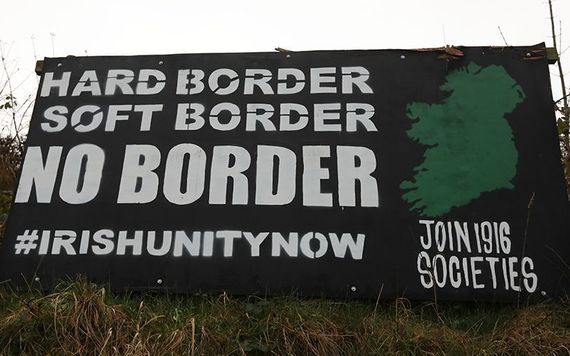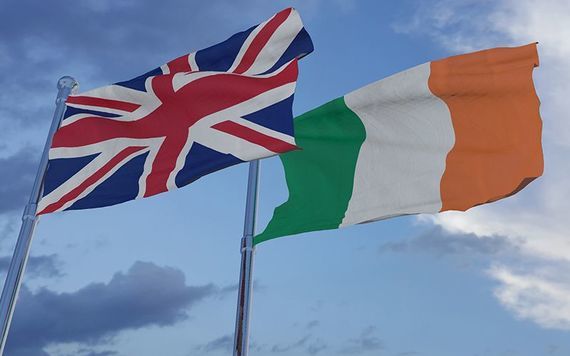The pending Brexit on October 31, 2019, places Northern Ireland in the eye of the storm. It’s difficult to predict what will happen either in the short or long term to the political and economic entities in Northern Ireland
What can be predicted is that both will be severely tested as they are subject to the interests of outside forces who advocate for their own narrow interests, regardless of perceived colonial ties or cultural identities.
Those who nurture and perpetuate the sectarian-driven political system in Northern Ireland must be aware that Brexit poses a threat to its viability as a political force in an age past its time where religious and cultural differences can no longer be exploited or where a 100-year old line drawn across a landscape can no longer effectively separate people who share a historic island nation.
Keep up-to-date with IrishCentral's Brexit news here
Institutionalized sectarianism that underpinned ploys such as the “Orange card” can no longer be depended on to maintain the status quo in the face of a rapidly changing demographic more inclined to openness and equality.

A billboard along the Northern Ireland border protesting Brexit.
The partisan divide that served demagoguery so well for 100 years is being gradually eclipsed by an ever-increasing minority of non-partisan voters who rate inclusiveness and shared values above partisan causes rooted in centuries past.
What then should the people of Northern Ireland do who voted 56 percent to remain in the European Union knowing that England will do what is expedient for England even if it means setting Northern Ireland adrift?
The best choice, in my opinion, is for Northern Ireland to become part of a Federal Irish Republic wherein they would maintain their own parliament, thus guaranteeing the Province of Ulster effective home rule.
They would send representatives to Dail Eireann as they now send representatives to the Westminster parliament. In order to ensure the distribution of political power to the other provinces, Northern Ireland’s negotiators would insist on the establishment of a four-province Federal Ireland over a specific time frame that would allow for the development of a federal constitution and government structures enshrining provisions for devolved powers to provincial parliaments and local councils.

Ireland and the UK post Brexit: What's the solution?
Such an arrangement would position Northern Ireland to fully participate in the broader economic landscape that Europe provides and would provide for its young people access to the European labor marketplace. It would make Northern Ireland a more attractive place for international investment and a place where sectarianism would give way to utilitarianism.
The Republic of Ireland is also in the eye of the same storm. The economic ties between both entities are substantial, intertwined and enormously beneficial to the citizens on both sides of the political divide.
It’s incumbent on the powers to be in the Republic to be open to a proposed deal by their Northern neighbors that would obviate the worst aspects of Brexit and proffer a viable solution to the partition of Ireland. It’s highly probable that the citizens of the Republic would support a Federal solution because those who reside outside of Dublin believe that too much power and privilege is centered in Dublin and its environs to the detriment of the rest of the country. They bemoan the fact that in addition to the entrenched political endowments and entitlements everything of substance, including state-of-the-art medical centers, research facilities, financial institutions, sports and entertainment facilities, etc., continue to be sited in Dublin.
Read more: IRA ceasefire on this day in August 1994 – a day that changed Ireland forever
This article was submitted to the IrishCentral contributors network by a member of the global Irish community. To become an IrishCentral contributor click here.




Comments